What sanctions have been imposed on Russia?

As Russia begins the invasion of Ukraine and advances its ground troops towards Kyiv, Ukrainian President Volodymyr Zelensky urged international allies for more action, saying that sanctions that have been announced so far were not enough.
Ukraine announced that it would impose sanctions on 351 Russians, which includes lawmakers who backed the move to recognize the independence of two separatist regions, Luhansk and Donetsk, in eastern Ukraine and supported the Russian invasion of Ukraine. The Ukrainian government sanctions also restricted access to assets, property, capital, and business licenses as well as travel restrictions to Ukraine.
Ukrainian Foreign Minister Dmytro Kubela also urged the Vice-President of the European Commission for Foreign Affairs and Security Policy Josep Borrell to impose severe EU sanctions on Russia and immediately “stop Putin’s brutal invasion.” According to Kubela, Borrell assured that the “EU will impose tough sanctions within 24h”.
The Ukrainian foreign minister on February 24 posted on his Twitter that the world must act immediately and stressed that the future of Europe and the world is at stake.
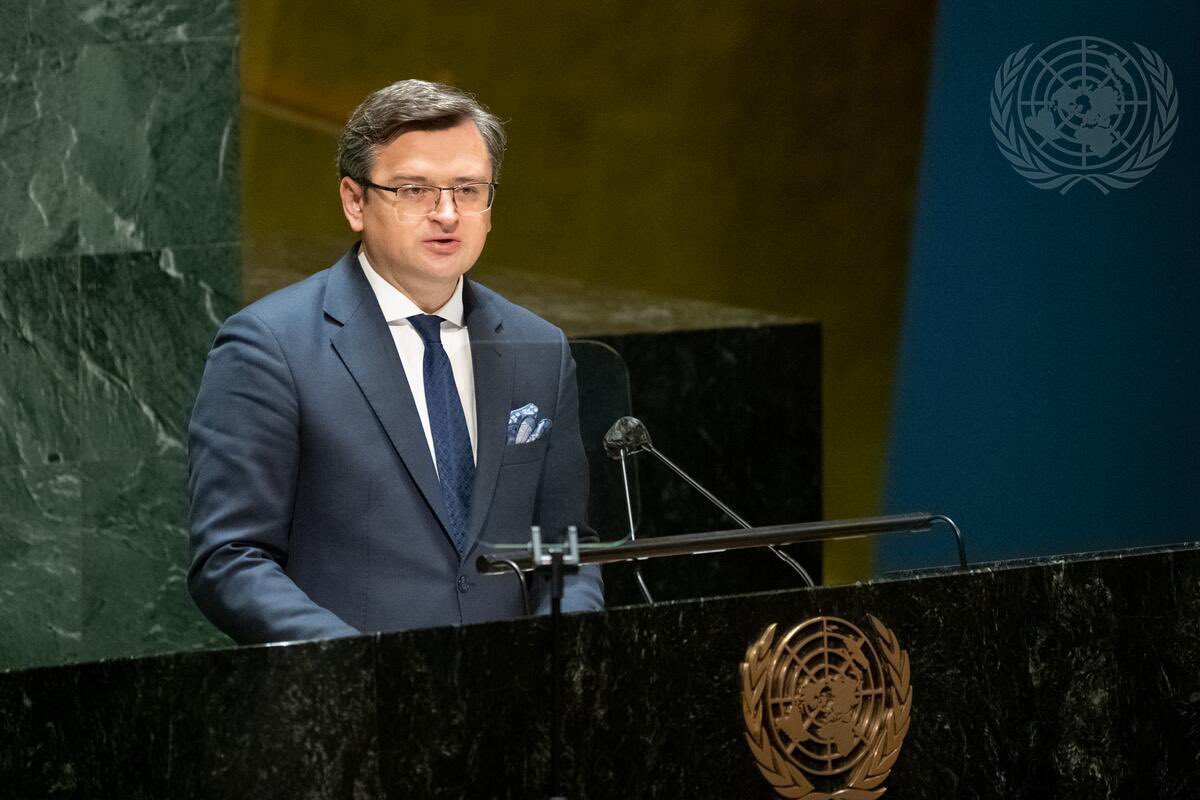 Ukrainian Foreign Minister Dmytro Kuleba addressing United Nations General Assembly. (Image Credit: Twitter/@DmytroKuleba)
Ukrainian Foreign Minister Dmytro Kuleba addressing United Nations General Assembly. (Image Credit: Twitter/@DmytroKuleba)
Dmytro Kubela also posted a to-do list, stating:
1. Devastating sanctions on Russia, including SWIFT;
2. Fully isolate Russia by all means, in all formats;
3. Weapons, equipment for Ukraine;
4. Financial assistance;
5. Humanitarian assistance.
The harshest possible measures would be to exclude Russia from the Society for Worldwide Interbank Financial Telecommunications (SWIFT) international payments system that connects more than 11,000 financial institutions around the world. The SWIFT sanction is considered as a “nuclear option” by some financial analysts and if Russia is banned from the system, it cannot handle cross-border payments and would be disconnected from much of the global financial system.
According to the Russian National Swift Association, hundreds of Russian financial institutions that have been sanctioned use Swift and handle more than 80 percent of Russia’s international payments. The Ukrainian government asked the international community to remove Russia from the SWIFT system, however, the U.S. and its allies have had some disagreements over imposing SWIFT sanctions on Russia.
The White House said in a statement on February 26 that “We commit to ensuring that selected Russian banks are removed from the SWIFT messaging system. This will ensure that these banks are disconnected from the international financial system and harm their ability to operate globally."
In response to the Russian invasion, the U.S. and its allies announced new sanctions that have been described as “massive” and “devastating.”
The United States on February 24 announced the first wave of sanctions on Russia with new measures mainly targeting its two biggest banks and members of the elite.
U.S. President Joseph Biden announced on February 24 that he is authorizing “additional strong sanctions and new limitations on what can be exported to Russia.” According to the U.S. president, the new sanctions will “impose severe costs on the Russian economy, both immediately and over time.”
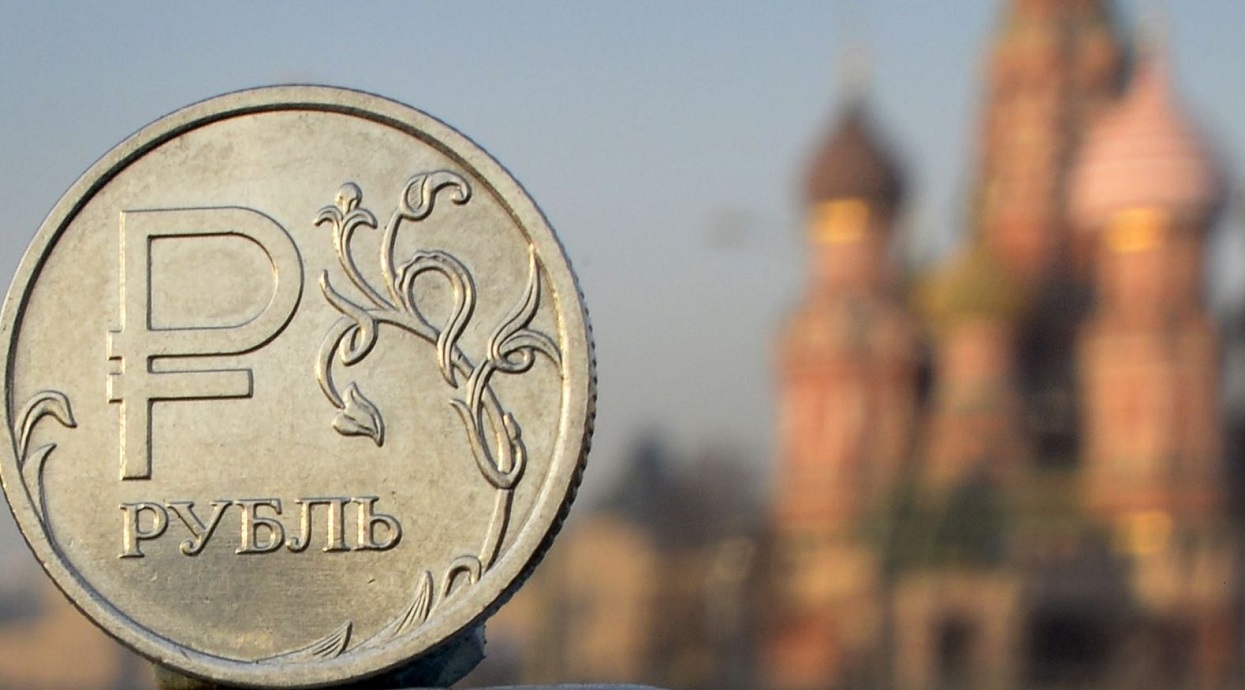 A Russian ruble with the spires of the Kremlin in the background. (Image Credit: AFP)
A Russian ruble with the spires of the Kremlin in the background. (Image Credit: AFP)
The targets include several wealthy individuals and their family members, five major Russian banks, including state-owned Sberbank and Russia's second-largest lender VTB (which has $250 billion in assets), and three Russian financial institutions, Otkritie FC Bank, Sovcom, and Novikombank, as well as about 90 international financial institution subsidiaries that are linked to the sanctioned banks.
“We have purposefully designed these sanctions to maximize the long-term impact on Russia and to minimize the impact on the United States and our Allies,” U.S. President Biden said.
According to the U.S. president, the members of the European Union, including France, Germany, Italy, as well as the United Kingdom, Canada, Japan, Australia, New Zealand, and many other U.S. allies, making up more than half of the global economy will work together to amplify the joint impact of the response.
“I just spoke with the G7 leaders this morning, and we are in full and total agreement. We will limit Russia’s ability to do business in Dollars, Euros, Pounds, and Yen to be part of the global economy. We will limit their ability to do that. We are going to stunt the ability to finance and grow the Russian military,” Biden said.
According to the U.S. Treasury Department, about 80 percent ($46 billion) of daily foreign exchange transactions of Russian financial institutions are conducted in U.S. dollars. The White House statement said that the sanctioned Russian banks together hold around $1 trillion in assets.
"The United States, in coordination with allies and partners, continued to forcefully respond to Russia’s unjustified, unprovoked, and premeditated invasion of Ukraine by imposing sanctions on President of the Russian Federation Vladimir Putin and the Minister of Foreign Affairs, Sergey Lavrov, as well as other members of Russia’s Security Council," the United States Treasury Deparment said in a statement on February 25.
"No one individual is more responsible for Russia’s war against Ukraine, destabilization of Russia’s neighbors, the suffering of the Ukrainian people, and years of Russian malign activities globally,” the statement added.
On February 28, the United States as well as several NATO allies imposed severe sanctions on the Russian central bank and sovereign wealth funds, to freeze their assets and ban dealings with the Russian financial institutions in order to punish the Russian administration for launching an attack on Ukraine.
The U.S. Department of the Treasury announced on February 28 that the latest sanctions will deprive the Russian president of funds he needs for the Ukraine war.
According to U.S. Secretary of the Treasury Janet Yellen, the “unprecedented action” that the United States is taking “will significantly limit Russia’s ability to use assets to finance its destabilizing activities, and target the funds Putin and his inner circle depend on to enable his invasion of Ukraine.”
European Union leaders met in Brussels late on February 24 and issued a statement highlighting that the 27 member states of the EU had agreed on sanctions on the Russian financial sector. According to the statement, EU sanctions will block Russia’s largest private bank, Alfa-Bank as well as five state-owned banks from EU financing.
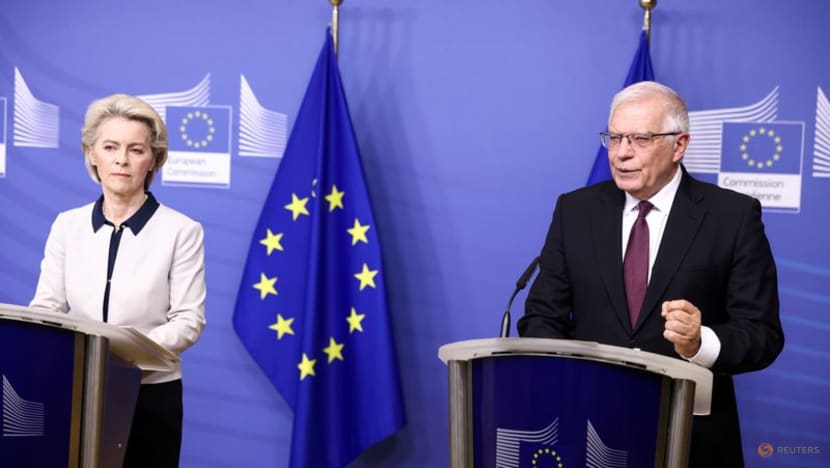 European Commission President Ursula von der Leyen and Vice-President In Charge of Foreign Policy Josep Borrell during a joint media briefing on Russia's attack on Ukraine, in Brussels, Belgium, on February 24, 2022. (Image Credit: Kenzo Tribouillard/Reuters)
European Commission President Ursula von der Leyen and Vice-President In Charge of Foreign Policy Josep Borrell during a joint media briefing on Russia's attack on Ukraine, in Brussels, Belgium, on February 24, 2022. (Image Credit: Kenzo Tribouillard/Reuters)
European states agreed to freeze all EU assets of Russian President Vladimir Putin and Foreign Minister Sergey Lavrov on February 25 in the latest wave of sanctions.
President of the EU Commission Ursula von der Leyen posted on her Twitter on February 25 that the European Union is united against Russia and the package of massive and targeted sanctions has been approved. According to Ursula von der Leyen, the package includes financial sanctions, targeting 70 percent of the Russian banking market and key state-owned companies, as well as defense firms. The EU also targeted the energy sector, "a key economic area which especially benefits the Russian state," she added.
In coordination with 🇺🇸🇫🇷🇩🇪🇮🇹🇨🇦🇬🇧 I will now propose new measures to EU leaders to strengthen our response to Russia’s invasion of Ukraine and cripple Putin’s ability to finance his war machine. https://t.co/iU2waDzo9s
— Ursula von der Leyen (@vonderleyen) February 26, 2022
"Our export ban will hit the oil sector by making it impossible for Russia to upgrade its refineries," Ursula said. The EU Commission president also said that the alliance banned the sale of aircraft and equipment to Russian airlines, and limited Russia's access to crucial technology, such as semiconductors or cutting-edge software. Moreover, the EU also banned Russian diplomats, related groups, and business people from entering the European Union.
Another most comprehensive measure is the expansion of the Foreign Direct Product Rule (FDPR) for Russian buyers. The European nations and the U.S. have also introduced export controls that will target wide-ranging military goods, including lasers, sensors, as well as telecommunications applications, and hit the Russian semiconductor supplies.
Germany announced on February 22 that it would halt certification of the $11.6bn Nord Stream 2 gas pipeline project, the underwater twin pipeline that would transport natural gas from Russia to Germany. The project is owned by Russian state-owned gas company Gazprom and has been repeatedly criticized by the United States for increasing Europe’s dependence on Russian energy.
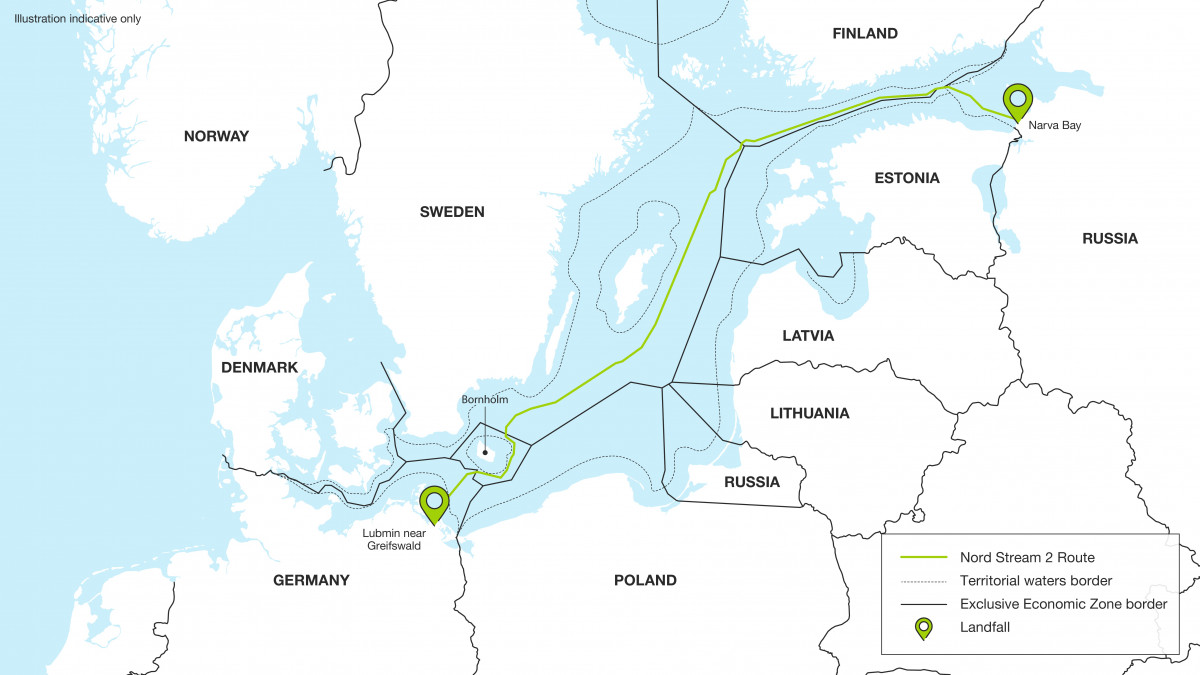 Nord Stream 2 pipeline, the route of the existing Nord Stream twin pipeline underneath the Baltic Sea. (Image Credit: Nord Stream 2 AG)
Nord Stream 2 pipeline, the route of the existing Nord Stream twin pipeline underneath the Baltic Sea. (Image Credit: Nord Stream 2 AG)
The Czech Republic, a landlocked country in Central Europe also banned Russian airlines and is expected to take further steps to ban Russian financial instituitions.
Prime Minister of Czech Republic Petr Fiala said “We are a country which experienced the aggressive policy of Russia, or Soviet Union, and our unique historical experience makes us much more sensitive", and vowed that the country will exit from two Soviet era international banks. Prague also stated that its finance ministry will review Russian-owned firms' access to the funds of Czech public.
Estonia announced that it will join several European nations and ban Russian airlines from using its airspace, Estonia's Minister of Economic Affairs and Infrastructure Taavi Aas told ERR public broadcaster.
Prime Minister of Estonia Kaja Kallas poster on her Twitter on February 26 that "Estonia is banning Russian airlines from our airspace. We invite all EU countries to do the same. There is no place for planes of the agressor state in democratic skies."
The United Kingdom has imposed sanctions that include an asset freeze and travel ban on eight Russian individuals, a dozen businesses, and six Russian banks, including Rossiya Bank, Promsvyazbank, General Bank, IS Bank, and Black Sea Bank. The UK also imposed sanctions on hundreds of Russia’s State Duma, the lower house of the Federal Assembly of Russia, as well as banned those individuals from all UK transactions.
Britain also sanctioned private investment firm Volga Group owner Gennady Timchenko, as well as oil and gas infrastructure firm SGM Group co-owners, Boris Rotenberg and Igor Rotenberg. In addition, Russia’s national airline, Aeroflot will also be banned from UK airspace.
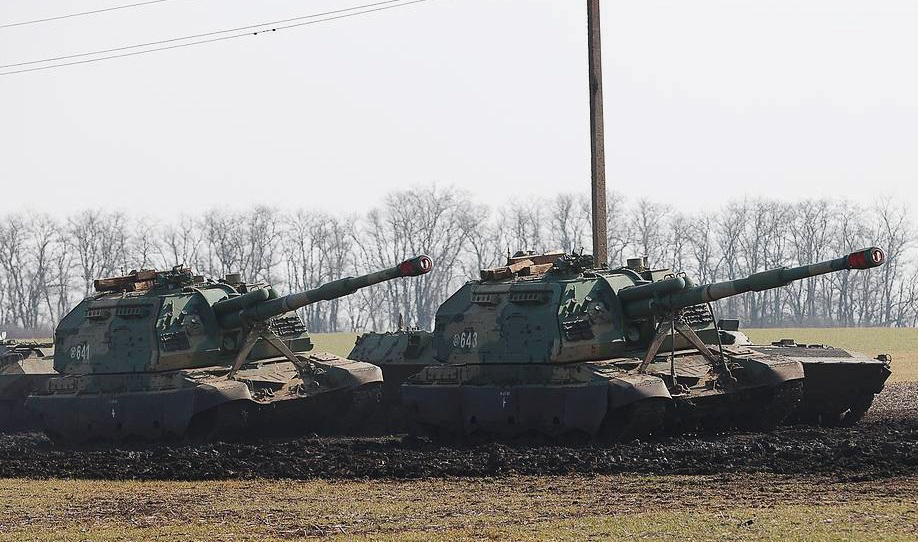 Russian tanks advancing into Ukraine. (Image Credit: Stringer/TASS)
Russian tanks advancing into Ukraine. (Image Credit: Stringer/TASS)
According to reports, the UK aims to finalize the legislation next week, under which major Russian state-owned and private companies will be prevented from processing any form of payments through the United Kingdom, as well as borrowing or raising capital on the UK markets.
British Foreign Secretary Liz Truss said Russia will also be banned from raising sovereign debt in London, while the legislation is also expected to forbid a wide range of hi-tech exports, including equipment that could be used to extract gas and oil.
“We are prepared to go much further if Russia does not pull back from the brink. We will curtail the ability of the Russian state and Russian companies to raise funds in our markets, prohibit a range of high-tech exports, and further isolate Russian banks from the global economy,” the UK foreign secretary said.
Australia is working closely with NATO to provide Ukraine with “non-lethal military equipment and medical supplies.”
Australian Prime Minister Scott Morrison said the new wave of sanctions against Russia will be placed against “oligarchs whose economic weight is of strategic significance to Moscow”.
Morrison stated that his country would also sanction “key Belarusian individuals and entities” as well as about 300 Russian members of parliament who voted in favor of launching an attack on Ukraine.
New Zealand announced targeted travel bans on Russia and banned trade activities with the Russian military and security forces. New Zealand Prime Minister Jacinda Ardern said, “an unthinkable number of innocent lives could be lost because of Russia’s decision”.
"The world is speaking and sending a very clear message to Russia that what they have done is wrong and they will face the condemnation of the world,” Ardern added.
Canada announced sanctions on Russian elites and their family members, targeting 58 individuals and entities, including Russian banks as well as its paramilitary Wagner Group. Canada announced retaliatory measures after Prime Minister Justin Trudeau attended G7 virtual meeting. Canadian sanctions will also affect the Russian Security Council as well as key cabinet members.
Canadian Prime Minister Justin Trudeau posted on his Twitter that his country will also be "sanctioning four Ukrainian individuals for their collaboration with Russia to destabilize Ukraine. In addition, effective immediately, we are halting all new export permit applications for Russia and cancelling existing permits."
We’re imposing new and severe sanctions on those responsible for Russia’s brutal, unjustified attack on Ukraine. These sanctions will target banks, financial elites, and members of the Russian Security Council — including the Defence, Finance, and Justice Ministers. pic.twitter.com/JsEodukwcZ
— Justin Trudeau (@JustinTrudeau) February 25, 2022
Canada’s Finance Minister Chrystia Freeland said on February 28, "This has never been done before at this scale – today we are taking a historic step by directly censuring Russia’s central bank." Freeland added, “Canada is firmly on the side of the heroic resistance of the people of Ukraine and we will continue to take further action to ensure President Putin does not succeed."
Canadian prime minister also posted on his Twitter on Feruary 28 that "Effective immediately, all Canadian financial institutions are prohibited from engaging in transactions with the Russian Central Bank – eliminating its ability to deploy Russia’s international currency reserves and further restricting Putin’s ability to finance his war of choice."
Japan, the U.S.’s close ally in East Asia, also announced similar sanctions to the U.S. on February 24. The sanctions include Russian financial institutions and defense equipment exports. Japan also plans to target several Russian elites linked with the Kremlin as well as major Russian banks and impose export controls on certain U.S. technology, including semiconductors and lasers.
Japanese Prime Minister Fumio Kishida said "Japan must clearly show its position that we will never tolerate any attempt to change the status quo by force." Kishida added that Japan would also ban certain Russian individuals and impose travel restrictions.
Russian Response
In response to the sanctions on Russian by the western countries, Russian Security Council Deputy Chairman Dmitry Medvedev said the sanctions would not change a thing and the Russian military operation in Ukraine would continue to protect the people of Donbass region. He also said that Russia may nationalize the property of American, European Union citizens in response to sanctions.
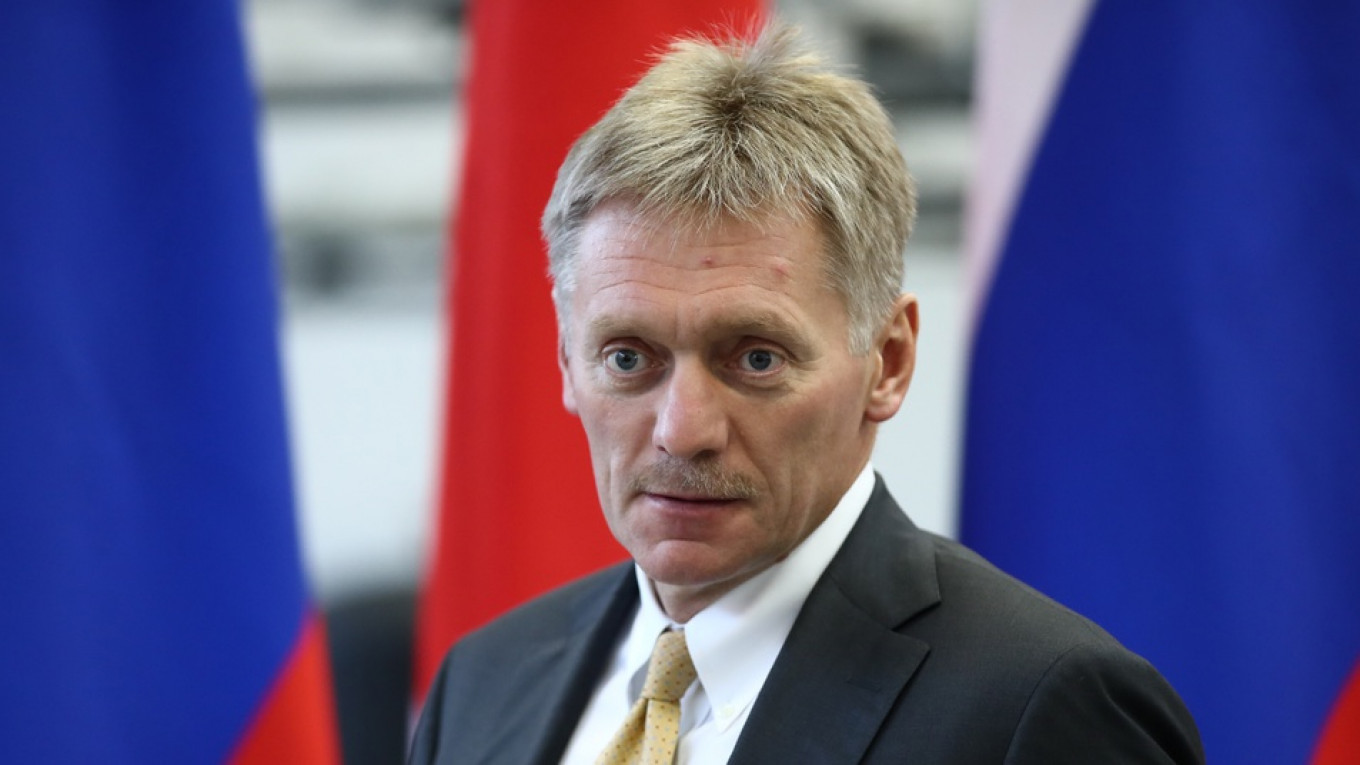 Russian presidential press secretary Dmitry Peskov. (Image Credit: Valery Sharifulin/TASS)
Russian presidential press secretary Dmitry Peskov. (Image Credit: Valery Sharifulin/TASS)
With regard to the sanctions on Russian president, the Kremlin spokesperson Dmitry Peskov said, "the very fact of imposing sanctions against the head of the state is absurd, short-sighted," and President Putin is "indifferent" to personal sanctions as he has no assets abroad.
ALSO READ:
Regions
Issues


















 Military assistance to Ukraine from West
Military assistance to Ukraine from West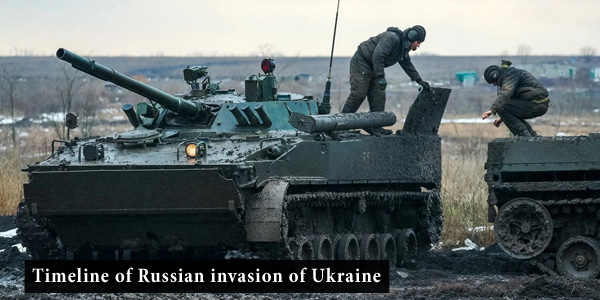 Timeline of Russian Invasion of Ukraine
Timeline of Russian Invasion of Ukraine







